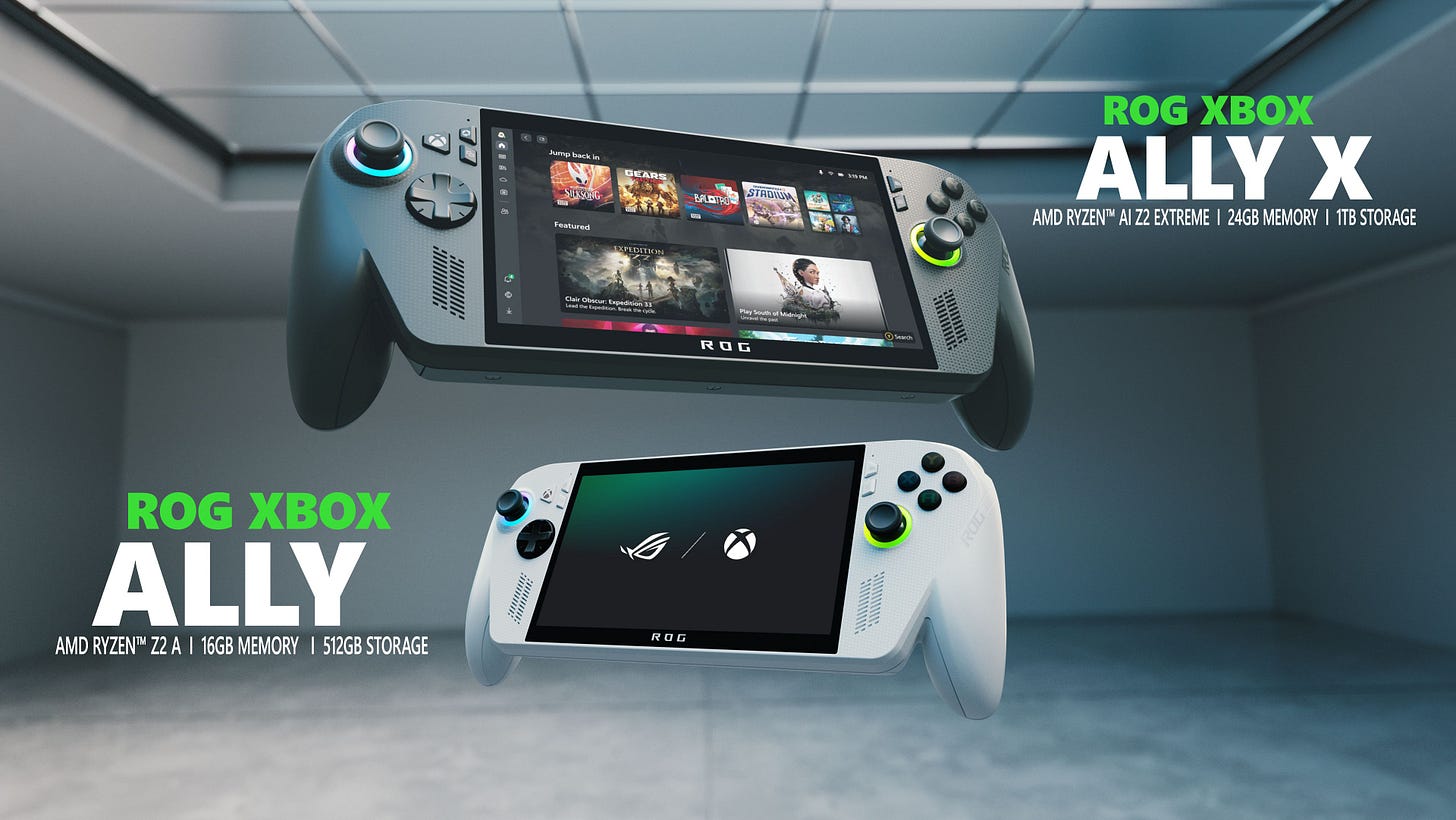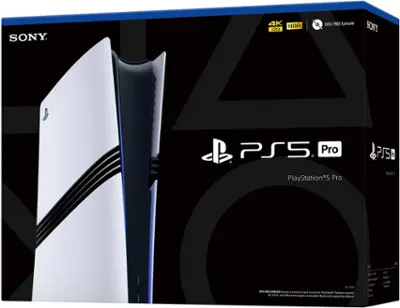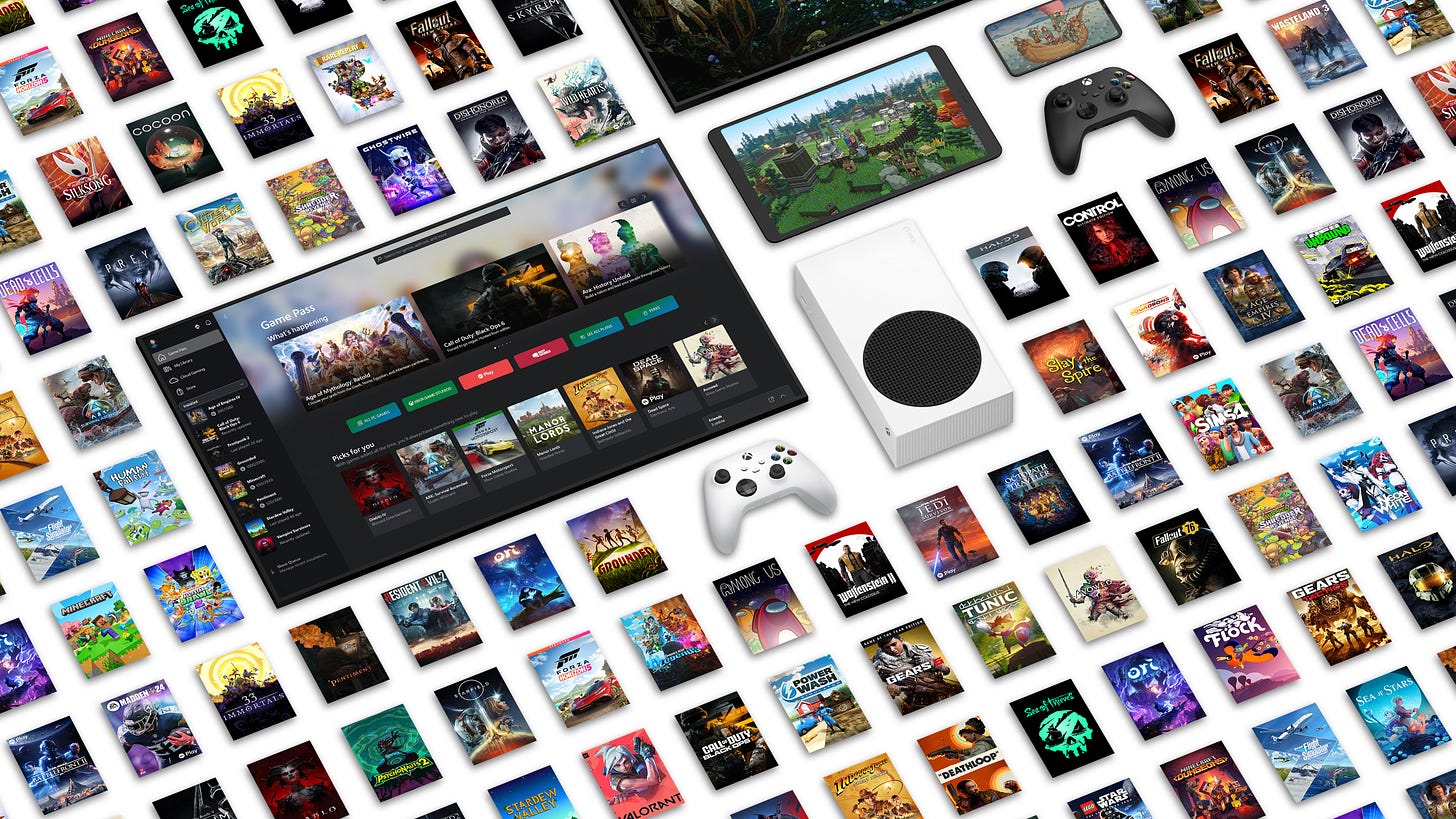I’ve had a theory going back to the mid 2010s that the future of video games would be similar to music and movies in that exclusive platforms would be slowly discarded for the ability to play video games anywhere and everywhere, like you can with other entertainment mediums today. The main thing holding a colossal industry like the games industry from becoming even more colossal and expanding to new consumers is the gateway of entry. You need to purchase an expensive plastic box that connects to your TV. From there, you buy pricey video games for your collection, and then you start all over again in about six to seven years. Now, there are aspects, even in the more walled-off PlayStation and Nintendo, that are beginning to go away. A major win for video game preservation is that the “big three” have all adopted backward compatibility. Generations are also getting longer, making that expensive purchase at the launch of a console feel like a better investment. However, we still have a long way to go to achieve real innovations and reforms that make gaming more than just plastic box wars.
The Vision of Xbox
Microsoft announced a continuation of its partnership with AMD. Obviously, for anyone following the industry, this isn’t a shocking surprise. AMD has become the supplier of silicon for most gaming consoles, as well as console-like gaming PCs, including the growing handheld gaming PC market. However, it’s the words that were used in the one-minute-long video that made a lot of people’s heads perk up. We heard multiple devices and are not tied to a single store. This means the rumors of Xbox giving us a box with storefronts like Steam and Epic Games Store seem to be becoming a reality. Imagine getting your new Xbox and when you boot it up, you still get a unified OS experience that’s easy to navigate like most consoles, but when you go to buy games, you’ll see Steam, Epic Games Store, GOG, Battle.net, and maybe more. This would be Xbox closing as much of the gap as possible and getting us a step closer to a one console future.
The multiple-device line is already in effect. Microsoft has revealed a partnership with ASUS for the ROG Xbox Ally, a handheld gaming PC that streamlines the Windows experience and runs on an Xbox OS. You have a storefront that acts and looks like Xbox, and then you also have access to the other storefronts that gaming PC players are used to. This also includes the PC PlayStation games that have been released on Steam. We’re hearing whispers that Xbox is considering a move similar to Windows, licensing its software to manufacturers who want to create their systems. The way I see this playing out is that we will see more handheld gaming PC makers adopt this new Xbox-like OS and integrate it into their next machines, potentially creating a challenge for Valve’s Steam hardware ambitions. I am also willing to predict that we will see this with their next-gen console as well. I think we get an Xbox Series S and X-style setup again from Microsoft, this time with a focus on AMD’s upcoming architecture, UDNA. From there, AMD sets up a lineup of chips that other manufacturers can use, similar to the handhelds, and they utilize the Xbox OS to create their own consoles. That, my friends, is the future of Xbox, and with the addition of cloud and other services, makes the “This is an Xbox” campaign clearer.
Doubters
Now, as excited as I am about the upcoming future of Xbox, I know not everyone is on board. I do think there’s a lot of confusion when you start to pitch this to gamers; even the most knowledgeable hardcore enthusiasts struggle with the idea of leaving behind the world they’ve known since they were kids. Now, I want to be upfront and let anyone who is in that camp know that I am not trying to attack or make fun of you in any way. I know that change is hard, especially when you’re accustomed to things remaining the same for so long. However, we must face the fact that the industry won’t make decisions based on a small online group that screams “buy physical!” or engage in a plastic box war that none of the third-party companies really care to be a part of. The industry will change based on financial considerations, continuing the long, complex relationship between money and the artistic side of art.
Many gamers, accustomed to their comfort zones of having a specific set of consoles and a new generation every six to seven years, become confused or worried about all of that changing. In one way, I understand where they are coming from. I do wonder if, if tomorrow, all video games were similar to popping in a Blu-Ray in any box you had, that would destroy everything we know about the video game console structure, a mainstream way to play games that has been around since the Atari 2600. It’s a MAJOR change. However, I do want to point out that the video game industry is the only one of the huge entertainment and art mediums that does this. The console model is an outdated model that has survived longer than it probably should have. When movies and music can acknowledge the changes in technology and how consumers access their products better than the medium that is most tied to technology, that seems like a problem.
One thing to remember, and I say this with respect to the folks who want to keep the gaming industry’s long-standing console model intact, is that the majority of people telling you they want to keep things the same with exclusives and generations are all gamers who already play games. The industry has hit a wall in attracting new gamers. There’s a reason most kids are now growing up with mobile games before SOME of them graduate to consoles. Mobile games are much easier to access and don’t require multiple expensive boxes to experience as much as you want. PlayStation and Nintendo will resist and fight the multiple devices and open garden future, similar to Apple fighting it in the tech space (and I say that as a big-time Apple fan). There is also a possibility that both Nintendo and PlayStation can survive with a solid base of 100 million or more for a long time, similar to Apple's dedicated fan base. But for the industry as a whole, I’m willing to bet most of the third-party companies are more excited about the stuff Xbox is doing than the others.
The Way I Game Could be Changing
I wanted to conclude this article with a brief version of what I originally intended to write before the Xbox-AMD announcement was made, which does tie into what Xbox is doing. I think the way I play video games is changing, and I believe the way I primarily play my games will look significantly different by the end of the decade. First of all, due to some credit card debt that I’m finally tackling, I’ve become even more reliant on Game Pass. It’s not that I don’t want to “support the devs”, I don’t have the money to be able to play my favorite hobby in an increasingly hostile world where times of escapism are necessary to get through it. I don’t have a choice with Nintendo and PlayStation, I have to buy their games at full price if I want to play them at launch, but I do love that Xbox gives me a financially stable way to keep gaming.
There’s also the way I play in general. I’m accustomed to playing the typical way in front of a big fancy TV in my living room. However, I’m a dad, and I don’t have the luxury that many streamers have of having a personal setup, so I can't turn on the TV and game whenever I want. I’m not going to hog the TV to play, and I don’t have the space to play my games in my bedroom. So, the idea of handheld gaming is becoming increasingly attractive to me. Don’t get me wrong, my instincts still hold me back as I’m too used to playing games on TV. Even with my Switch, I play it primarily on the TV more than handheld. But, I gotta face facts. I mostly game at night after my daughter goes to bed. With a handheld, my gaming options increase significantly.
I think what really pushes me to look at playing my games more on handhelds is the fact that video game graphics fidelity has hit a wall. Sure, games are going to look prettier on a TV and a more powerful box, but the overall product isn’t going to look that much different. Plus, it’s not like I’ll never play on a TV again; it's just that it fits my life better to play mostly on a handheld than to wait to use my living room TV. So, we'll see; price is a big factor too, and I’ll keep my eye on these Xbox handhelds. When I get the Switch 2, I’ll try my hand at playing in handheld mode primarily.
In Conclusion
I’ve been banging the drum that the video game industry and how we access our games is going to change significantly by the 2030s since the mid-2010s. It’s been a slow process, but the predictions I’ve had since then are finally starting to show up. I understand that for many, there are still many questions about this future. I don’t think that PlayStation and Nintendo will suddenly follow; that'll either take a lot of time, or they’ll become the Apple of the industry. However, I do think we have to accept that the console era is dying. It’s not that people won’t primarily play on a console, just that more and more people will be able to access their games beyond just console, and that the traditional platform exclusives, branding, and generations are going to be very different. Remember, we are always living in unprecedented times because you’re living through history. It’s never going to stay the same.
Be Nice to All







